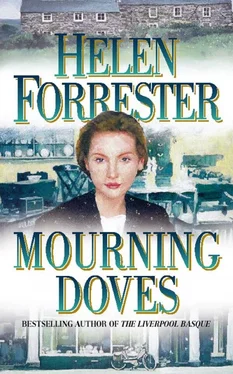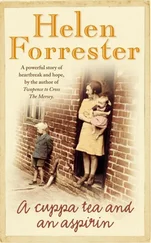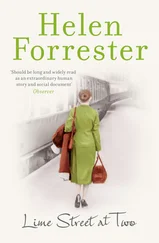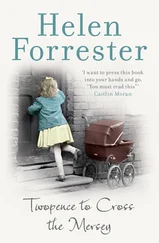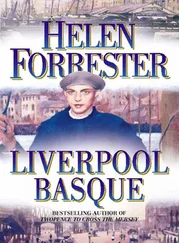‘You can’t marry a name on a war memorial,’ she had complained pitifully to her only woman friend, Phyllis Woodcock, whose husband had proved to be too delicate for call-up.
Phyllis, who was not very enamoured of the married state, muttered agreement. Like Celia, she had been warned in her youth that, for a single woman who left home, there was no way for her to earn a living except by being a governess or, if one was uneducated, face a fate worse than death by joining the crowds of ladies of the evening all over the city. These sinful hussies were there for even the most innocent, honest women to observe, and it was whispered that they died of horrifying diseases. Just what ladies of the evening did to come to such untimely ends, neither Celia nor Phyllis were quite certain, but both of them were sufficiently scared not to want to try it.
Once when he came home on leave, George had told her cheerfully that someone had to keep the home fires burning while the men were away, and this had been a small comfort. The walls of the West Derby house became to her at least some sort of defence against the unknown.
She bowed her head and, with her mother and a group of elderly females, rolled bandages and knitted socks and Balaclava helmets for the troops. Her mother did a lot of organising of sales of work and big balls at the Adelphi Hotel to raise money for the Red Cross, which, for Celia, meant endless writing of letters and running hither and yon on small errands for her mother. She became accustomed to the invisible walls of her prison and to being her mother’s obedient shadow.
Now, however, the sudden crumbling of the relative safety of her imprisoning walls had frightened her so much that panic had set in again; that open gates might lead to greater freedom for her to do something for herself did not occur to her; long-term prisoners do not always try to escape when the opportunity offers – and Celia was no exception.
‘“… and I will dwell in the house of the Lord for ever.”’
The muttering ceased, and she lay still. If she remained very quiet, she comforted herself, God would give her strength. He had to, because there was nobody but herself to look after Mother until Paul and Edna arrived to help her.
Soon after six o’clock the next morning, young Ethel, sleepy and irritable, clumped into the breakfast room. She swung a heavy coal scuttle into the hearth and followed it with a clanking empty bucket in which to carry downstairs yesterday’s cold ashes from the fireplace. The room was dark, except for a faint glimmer of dawn through a crack between the heavy window curtains.
Suddenly awakened, a bewildered Celia sat up on the chaise longue.
At the sight of her, Ethel screamed and clutched her breast dramatically. ‘Oh, Miss! You give me a proper fright! Haven’t you been to bed?’
Celia swallowed, and pushed back her long tangled fair hair, from which all the hairpins seemed to be missing. She laughed weakly as she swung her feet to the floor. ‘No,’ she told the little fifteen-year-old. ‘I was so tired that I fell asleep here on the sofa.’
Rubbing her hands on her sackcloth apron, Ethel came over to stare at her. She thanked goodness that it was only Miss Celia there, not the Missus. She had not bothered to put on her morning mobcap to cover her own untidy locks, and the Missus would have been furious to see her without a cap.
‘Are you all right, Miss?’
‘Yes, thank you, Ethel. Would you light one of the gaslights? I think it will still be too dark to draw back the curtains.’
‘I were just about to do it, Miss, when I seen you.’ Ethel drew a box of matches out of her pocket, and went to the fireplace. After striking a match, she stood on tiptoe to turn on one of the gaslights above the mahogany mantelpiece.
There was a plop as the gas ignited and the room was flooded with clear white light. Dead match in hand, Ethel turned, for a moment, to stare at her young mistress, before beginning to clear out the ashes. In her opinion, Miss Celia was taking her father’s death proper hard and looked real ill with it.
She began to hurry her cleaning, so that she could return to the kitchen to gossip with Dorothy about it.
Celia sat on the edge of the chaise longue, absently poking around the cushions in search of some of her hairpins, while her eyes adjusted to the bright light.
As she rose unsteadily to her feet, she noticed the silver card plate from the hall lying on the table in the centre of the room. It held a number of visiting cards. Dorothy must have brought it in the previous evening, and it had lain neglected because of Louise’s collapse. Now Celia quickly sifted through the cards.
They indicated that the vicar’s wife and two of Louise’s women friends had called. In addition, there was a card left by her own friend, Phyllis Woodcock, who had been too far advanced in her fourth pregnancy to come to the funeral. She had scribbled a note to Celia on the back of her card to say that she would try to visit again tomorrow, after the midwife had been to check on her state of health.
Dear Phyllis! Childhood playmate and still her friend, despite her brood of awful children and her whining husband.
Tomorrow is today, thought Celia. God, I must hurry. See to poor Mother, talk some sense into her – about the maids, about the cottage, about what furniture we should take with us, what we should sell. How did one sell superfluous pieces of furniture? Go to Hoylake to see Ben Aspen, the builder recommended by Mr Billings – would he need money down or would he send a bill later on? Go to see Mr Carruthers, the bank manager, about what one did to cash the cheque from Mr Billings. Did Mother know how to cash a cheque?
After she had done all that, Celia remembered, there was the enormous task of writing letters of thanks for masses of flowers and in response to black-edged missives of condolence. Her father had been a well-known businessman and churchman, but, nevertheless, the interest engendered by his unexpected death had amazed Celia.
‘He must have known everyone in the city!’ Celia had exclaimed to her exhausted mother, who, on the day before the funeral, sat with that morning’s mail, still unopened, in her lap, while Dorothy added yet another floral tribute to the pile surrounding her father’s body in the sitting room, and Cousin Albert greeted the vicar and his wife at the door.
Louise responded wearily, ‘He did. We did a lot of entertaining.’
‘We did,’ Celia agreed, remembering the long and boring dinners, which involved so much work. She herself often helped Winnie and Dorothy on such occasions, by doing the complicated laying of the table and overseeing, from the kitchen, that the right dishes for each course were lined up, ready for Dorothy to carry upstairs. She herself rarely appeared at the parties.
Now, with her father safely in his grave and Cousin Albert back at his own home, she stood, for a moment, balancing herself against the table and looked shakily at the visiting cards. Through her tired mind rolled unusual words, like dowry, annuity, bankruptcy, land ownership. How could she deal coolly and calmly with visitors, when her tiny world was in such chaos?
Paul! Edna! Please, dears – please come soon, she prayed. She feared she might sink again into her panic of the previous night.
But Ethel was making a great dust as she cleared the ashes from the fireplace, and Dorothy was pushing the door open with her backside, as she carried in her box of brushes and dusters and her Bissell carpet sweeper. ‘Mornin’, Miss,’ she said mechanically, as she saw Celia.
To calm herself, Celia took in a big breath of dusty air and replied gravely, ‘Good morning, Dorothy.’
She went slowly out of the room and up the stairs. Her legs dragged, and she could not make herself hurry. Better leave Mother to sleep and then give her breakfast in bed, she considered. Before she wakes, I could make a list of things we must do, and, after breakfast, get her going on the more urgent ones – like seeing the bank manager.
Читать дальше
